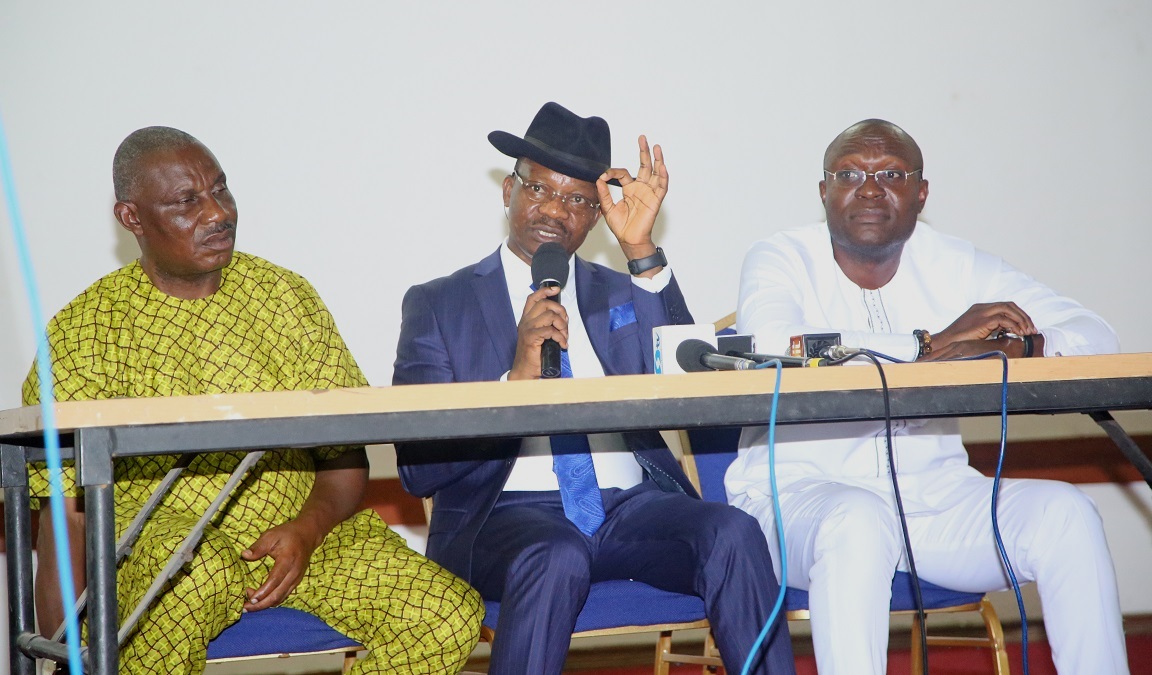Nigeria is experiencing a slow but steady progress towards economic diversification through increased commitments in the non- oil exports segment.
Indeed, Nigeria’s non-oil export sector has performed excellently in the first six months of 2022, raking in a whooping sum of $2.6bn into the coffers of the Government.
The Nigerian Export Promotion Council, under Ezra Yakusak has been committed to the unwavering stimulation of the non-oil export sector of the economy with a sole goal of developing it. The Federal Government through NEPC has initiated various programmes and projects to achieve this aim.
In essence, the NEPC is the apex institution for the promotion, development, and diversification of exports, and has worked over the years to achieve its mandate.
The council is, among other things, saddled with the responsibility of coordinating and harmonising export development and promotion activities in the country, taking the lead in all national export programmes, as well as interfacing with international trade agencies on cooperation and capacity building.
The NEPC boss recently pointed out that the country’s non-oil export sector recorded significant growth as about 4.15 million metric tons of products were exported during the period in spite of the global economic recession that affected most businesses in 2021.
With figures and facts available, there’s no gainsaying the fact that the federal government has conscientiously sustained its commitment to the development of the non-oil economy, especially the export segment in recent times. Luckily, the numbers are beginning to go up.
Data from the National Bureau of Statistics (NBS) showed that in the first quarter of 2022 (Q1 2022), the country’s total foreign trade increased to N13 trillion, higher than the N11.70 trillion recorded in Q4 2021 and further higher than the N7.86 trillion in Q1 2021.
Under Ezra’s leadership, NEPC has not rested on its oars to ensure that every segment of the society is carried along in a bid to develop non-oil exports in the country.
Since his appointment as chief executive of NEPC in 2019, Yakusak has launched various initiatives towards promotion of non-oil exports, as well as partnering with all stakeholders to eliminate barriers in the sector.
Citing pre-shipment inspection data, Yakusak, said half-year non-oil export performance was the highest since 2018.
According to an analyst, this development is particularly heart-warming given that over the years, the government’s efforts towards earning foreign exchange through non-crude oil sources appeared not to have yielded positive results.
The agency has also urged youths to increase their participation in the Federal Government’s economic diversification agenda for sustainable and inclusive economic growth.
If properly harnessed, the various workshops scheduled for youths to encourage their love for non-oil export will provide a platform to encourage them to participate in the global market and create employment and boost non-oil export trade.
The council has been unrelenting in discharging its responsibility of promoting development of non-oil export in Nigeria, urging participants, youths and unemployed graduates to tap into the opportunities that abound in the non-oil export value chain.
NEPC’s programmes to create awareness on the development of the non-oil export sector include a consultative forum on the development of bananas for export, capacity building on good agricultural practices for improved quality cocoa production and training workshops for SMEs, women entrepreneurs, fish farmers and youths on export logistics.
NEPC has initiated programmes including One State One Product; opened Export Trade House in Egypt, Nairobi and Togo; SHETRADE Desk for Women in Export; and Youth Export Development programme all geared towards facilitating export.
Interestingly, non-oil export performance in the first half of 2022 put at about $2.6bn represents an increase of 62.37 per cent compared with N1.60bn recorded during the same period in 2012.
Yakusak said that the NEPC is currently working with the Federal Ministry of Industry, Trade and Investment and other relevant agencies of government to end the rejection of Nigeria’s products in the international market.
To this end, he said the NEPC had concluded arrangements to embark on an inter-agency working/fact-finding visit to the United Kingdom to ascertain specific causes for the rejection of imported commodities from Nigeria.
He said, “This mission is to provide Nigerian export regulatory/facilitating agencies the opportunity of observing the processes of agricultural commodities import procedures and to also interact with port health and food import regulatory agencies at the border control points in the UK.
He said, “We, at the NEPC, firmly believe that our survival as a nation depends on non-oil exports. We therefore urge Nigerians to join our Export4Survival campaign train with a view to building a virile economy driven by the non-oil export sector.”
With these heart-warming stories about Yakusak’s sterling performance at NEPC, the federal government must be committed to funding and supporting the sector in the interest of economic diversification and job creation for Nigerians.
Olamide Adeniji is a member of the editorial team of TheScript Newspaper




